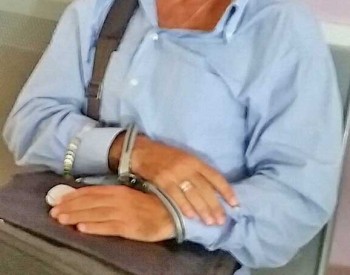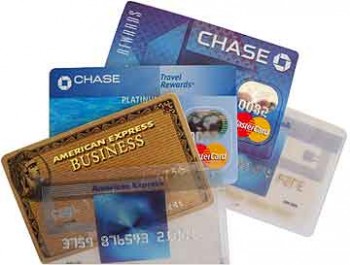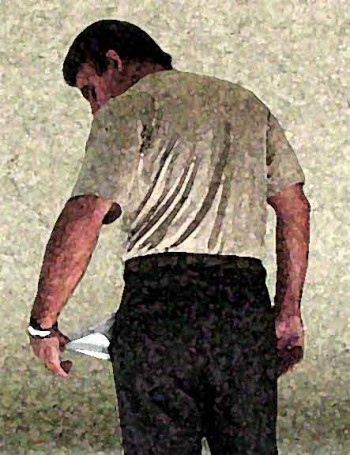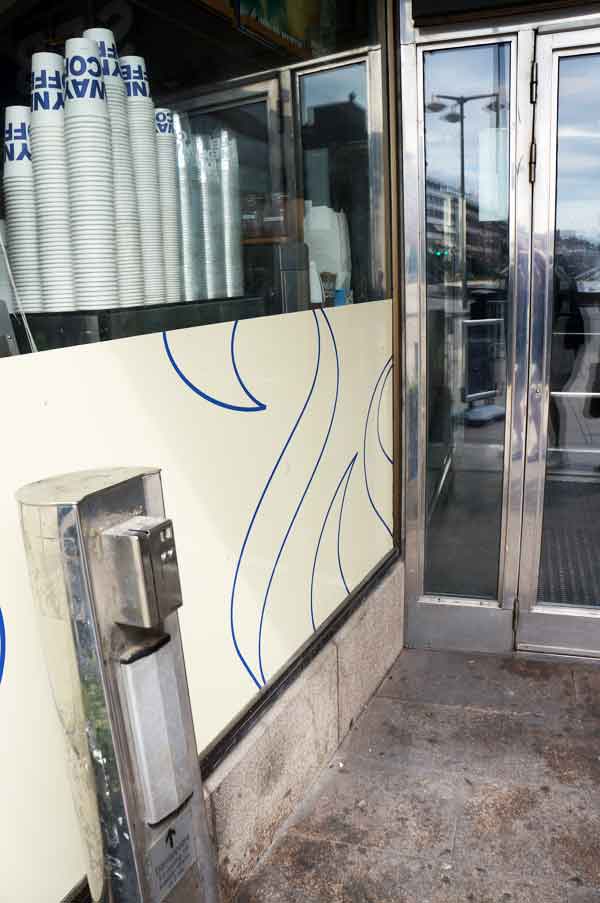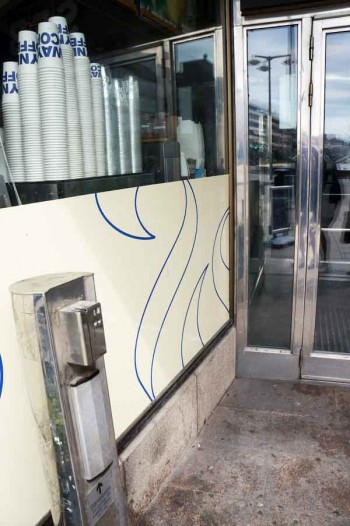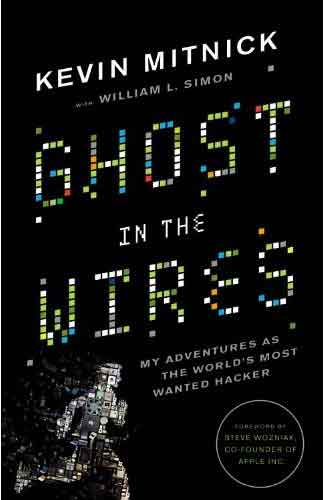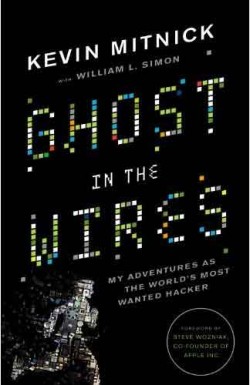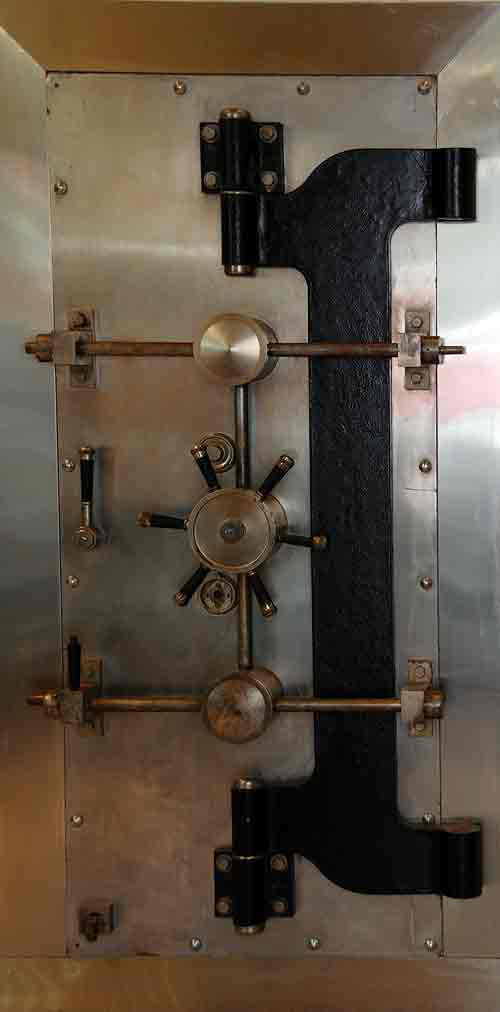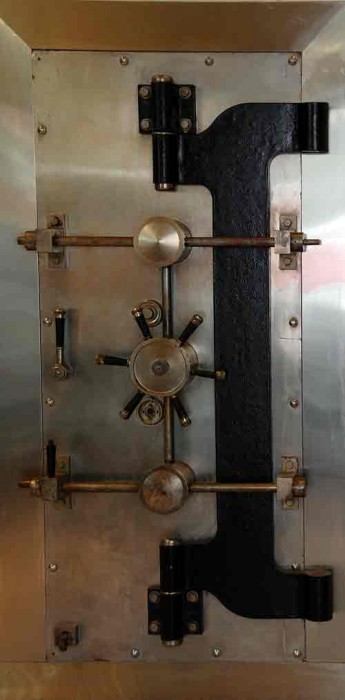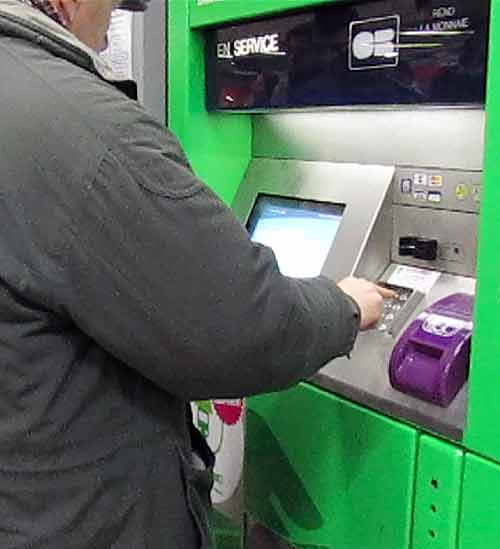
I thought Kevin Mitnick was a friend of mine—but that was before I read his forthcoming book, Ghost in the Wires. Kevin’s the consummate liar, it seems. He’ll say anything to get what he wants, going to extreme efforts to research, then set up support for elaborate cons. He’ll claim to be a cop, a utility employee, or your colleague from a remote office, if it serves his purpose. A faceless voice on the telephone, he’ll sweet-talk one minute, and command with authority the next. At least he used to do this, before spending five years in federal prison…
To become the boldfaced name in social engineering, Kevin honed a natural knack for people-reading from childhood. He was a telephone Zelig who rarely needed to get out of his sweats. He always found a plausible pretext for his capers and pursued them with outrageous chutzpah. Rarely would he fail to obtain the information he sought.
Can one retire a talent like that? I doubt it, but as I can’t think of what use Bob and I are to Kevin, I prefer to think that we really are his friends.
Ghost in the Wires: My Adventures as the World’s Most Wanted Hacker is Kevin’s third book, to be published in August 2011. I love that title. The book chronicles how Kevin, from an early age, tinkered with communication devices: ham radios, telephones, cellphones, computers, and the software that runs them all. Although he was obsessively compelled to dig deeper and deeper into the gizmo-code, he never tried to make or steal money from his exploits. He did it out of his own curiosity, to learn more, and to challenge himself to do what seemed impossible.
Sometimes, in his relentless pursuit of knowledge, he simply had to break into a company’s computer to get the software, the code, or the user names and passwords that he needed. In an electronic sense, that’s breaking and entering. And when he copied that proprietary information for his own use, well, that’s stealing.
Once he’d gained access to his target computer, he’d usually fiddle with its inner settings just enough to plant a “backdoor,” an easy way in for his next visit. He might read his target’s emails and even copy them, but he never destroyed the files.
Imagine an intruder who breaks into your house, sneaks around and looks into your secret hiding places, rifles your files, and picks through your drawers. Satisfied, he then backs out quietly leaving everything just as it was, sweeps up his footprints and, oh yeah—copies your house key on the way out.

I’ve heard Kevin call himself a “non-profit hacker.” Sure, he got himself free phone calls, but throughout his hacking career, he was always gainfully employed. With the information he had at his fingertips, he could easily have enjoyed a life of leisure from credit card fraud. He could have sold proprietary source code in the hackers’ underworld. But no; Kevin lacks a vital attribute. He has nerves of steel and gigantic balls, but he does not possess a criminal core. He was simply educating himself.
That is, until he got himself in trouble for snooping. Then he needed that information to protect himself, so he could make untraceable phone calls, so he could listen in to others. As the Feds closed in on him, he needed to know how much they knew about him, too.
Many times while reading Ghost in the Wires I wanted to smack Kevin. I wanted to shake him and say “you just got out of juvenile detention for doing just this—why are you doing it again?” He makes it clear that his hacking was his idea of fun and entertainment, to see if he could get to the next level. Like an addicted gamer.
It turns out, after all, that Kevin was busy educating himself. From “the world’s most wanted hacker” he has become one of the most wanted security experts in the world. He’s now considered the ultimate social engineer and an “ethical hacker,” one who’s challenge is to break into his clients’ systems, whether electronically or by social engineering. In other words, as Mitnick Security, he’s now paid to do what he loves, and he no longer has to look over his shoulder.
Social engineers are an ominous bugbear to security. A company (or you!) can have the tightest security system in place, but humans are its weakest link. For a hacker like Kevin, it’s easier to simply ask for the key to the front door than to steal it. He simply has to ask in the right way. Because social engineers are basically skillful actors playing a role, they’re an invisible threat and a daunting challenge for businesses.
I’m no hacker, that’s for sure, nor even a programmer. Yet, I found it fascinating to read exactly how Kevin finagled himself into systems and tweaked them to his advantage. Kevin wanted to include more of the nitty-gritty hackery in the book, but his co-author, Bill Simon, saved us readers from too much esoterica. I think they struck an excellent balance. I never felt bogged down by the technical bits.
In fact, some might worry that Ghost is a hackery cookbook, complete with lessons in how to get others to spill their secrets. I worried about this aspect with my own book, Travel Advisory: How to Avoid Thefts, Cons, and Street Scams.
Does an exhaustive explanation of theft techniques actually teach the thieves? Kevin and I obviously came to the same conclusion: no, there’s more to gain by putting all the details out there, the better to protect yourself.
I feel a little sorry for all the good people whose trust Kevin exploited. They bought into his ruses in a good-faith effort to be helpful. No doubt that he used them, and probably got many of them into big trouble. Well, in my line of work too, thiefhunting and training the public to avoid theft, a kernel of cynicism is not a bad seed to plant. Kevin’s patsies will think twice before giving out sensitive information.
Ghost is 400+ pages of tension, broken only by Kevin’s sentimental musings about his mother and grandmother, who are constant supportive figures in his life, and the heartbreaking side-story of his brother. It’s fast reading—a tribute to the clear writing and exciting story.
Yeah, yeah, you think I’m all positive because Kevin’s my friend. He gave me an unedited galley copy of the book (littered with typos), but didn’t ask me to write about it. If I hadn’t liked it, I wouldn’t have written a word.
Or maybe I would have. After all, Kevin might not be a real friend of mine…















